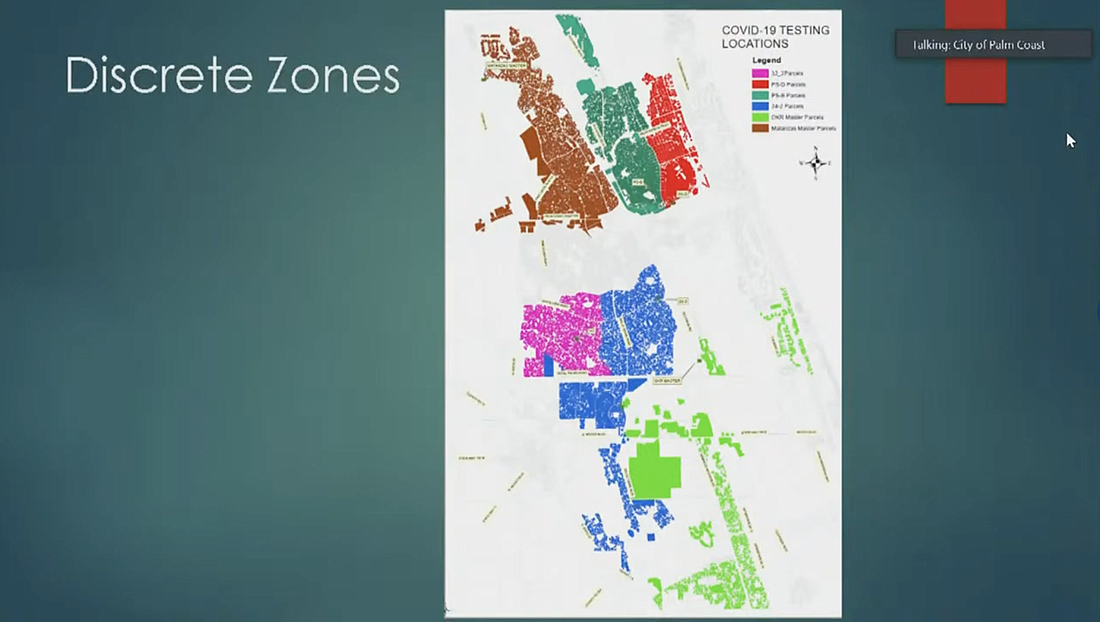- April 24, 2024
-
-
Loading

Loading

Palm Coast is planning to test the community’s sewage for RNA from SARS-CoV- 2, the virus that causes COVID-19.
"It’s better to do it and find out that we don’t have a problem than to find out that we have a problem because we didn’t do it."
— EDDIE BRANQUINHO, Palm Coast city councilman
The city, dividing its territory into six sewage zones, can then create a heat map showing which areas have the highest concentration of shed virus particles.
“It’s a novel application, but it’s a very practiced methodology,” City Manager Matt Morton said during a City Council meeting July 7.
The World Health Organization has used it to track outbreaks of typhoid, he said, and it’s also been used to monitor communities for evidence of illicit drug use.
“This combination of both surveillance methods — which includes continued individual testing but also broad testing through wastewater — this combination has proven useful ... for planning, implementation and evaluation of public health practices,” Morton said.
Regular COVID-19 tests have lately had a one- to two-week turnaround time, he said, while the workload associated with contact tracing makes it increasingly infeasible as infection numbers rise.
For the sewage testing, the city would contract with AquaVitas and Arizona State University for testing and report generation, with testing performed at six sites weekly for 13 weeks (extendable for up to a year) at a total cost of $47,100. Morton said he believes the city would be able to recoup the cost through CARES Act funding or FEMA reimbursement.
Monitoring the sewage would give city staff an early indicator of where outbreaks are occurring, he said.
“With the wastewater sample, what we’re doing is for each sample we take we’re literally able to, in essence, survey a very large population, a very large sample,” he said.
The city is partnering with the Florida Department of Health in Flagler County, he said, to analyze results.
Mayor Milissa Holland said that Dr. Stephen Bickel, the medical director for the Florida Department of Health in Flagler County, had suggested the wastewater testing.
As schools prepare to open, Holland said, she believed it would be important to overlay the schools onto the city’s heat map. That would give the Health Department a tool to investigate a possible outbreak.
Councilmen Eddie Branquinho, Nick Klufas and Bob Cuff were also in favor.
“It’s better to do it and find out that we don’t have a problem than to find out that we have a problem because we didn’t do it,” Branquinho said.
Klufas said, “If it even gives us the slightest edge ... this will certainly have paid for itself. And if we can get the dollars back, even better.”
Cuff had read about sewage testing performed in Tennessee and other states, showing that testing was underreporting positive cases. He said it would be data the city can put to good use.